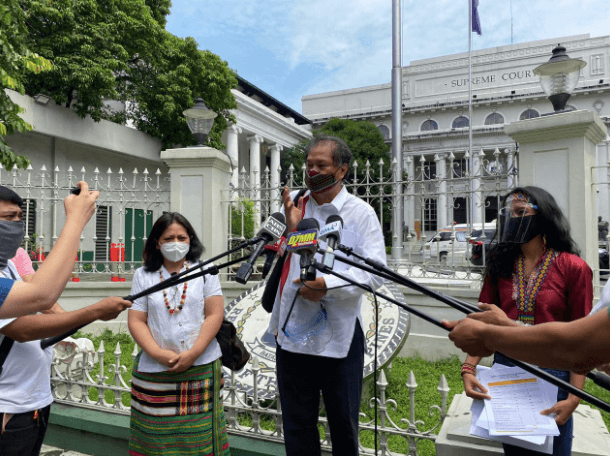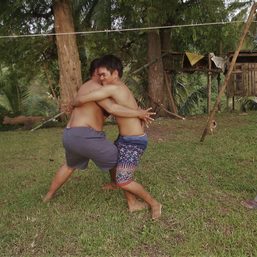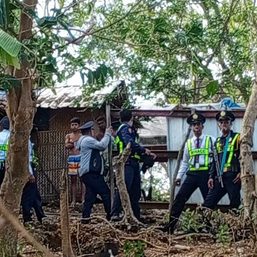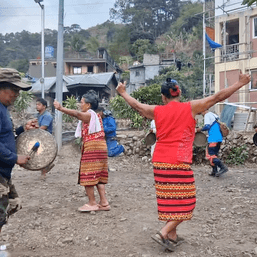SUMMARY
This is AI generated summarization, which may have errors. For context, always refer to the full article.

Indigenous peoples’ (IP) and Moro groups filed on Friday, August 7, the 26th petition against the anti-terror law, bringing the Supreme Court’s attention to a recent misfiling of the Department of Justice (DOJ) under the old Human Security Act as a supposed proof of the “red-tagging policy of the government.”
Among the petitioners are IP leaders Beverly Longid, Windel Bolinget, and Joanna Cariño who were among 656 people that the Duterte government had wanted to declare as terrorists through a proscription case filed by the DOJ in February 2018.
When Justice Secretary Menardo Guevarra took over the DOJ in April that year, he told the House of Representatives that the justice department did not verify the list that was forwarded to them by military intelligence.
In January 2019, the DOJ withdrew most of the names and left only 8 people. In February 2019, the Manila Regional Trial Court further trimmed down the list to 2 to include only the exiled Communist Party of the Philippines (CPP) founding chairman Jose Maria Sison and alleged Mindanao Commission Secretary Antonio Cabanatan.
“This is not, however, the first, and will most definitely not be the last time, that indigenous groups, individual persons and those who work closely with them will be red-tagged as being fronts of the CPP-NPA or as terrorists,” said the petitioners, represented by law professor Tony La Viña.
The petitioners added: “The passage of RA 11479 will even potentially exponentially increase the instances of this red-baiting on three grounds: its vague provisions, its disregard for the context of the indigenous peoples, and its giving more power to State forces, most of whom have been at the forefront of the abuses against the indigenous peoples.”
Former senatorial candidate and IP leader Samira Gutoc is also among the petitioners. (READ: EXPLAINER: Comparing dangers in old law and anti-terror bill)
Prescription and designation
The DOJ’s case against Sison and Cabanatan are still pending.
It is called a proscription case, which the court must hear in a full trial and resolve before either of the two – or the CPP-New Peoples’ Army–National Democratic Front (CPP-NPA-NDF) as a group – are declared as terrorists.
In the Philippines, mere membership to the CPP is not a crime. Armed rebels are charged for specific crimes. The Manila RTC even said in its latest order that Sison and Cabanatan are not treated as respondents per se, but attached to the case only for the purposes of serving summons to the CPP.
Under the anti-terror law, the anti-terror council has a new distinct power: designation. Through that power under Section 25, the council can designate people and groups as terrorists based only upon its own determination without a need for a court’s approval.
Because the anti-terror law gives the council the power to order the warrantless arrests and maximum 24-day detentions of suspects, the petition said Section 25 “could thus indiscriminately declare any organization as terrorist and thereafter conduct arrests.”
The anti-terror law added new crimes to include membership in terror groups, inciting to terrorism, planning to commit terrorism, such that the government can also “prosecute supporters,” according to the petition.
“Even normal conduct, such as everyday commercial transactions, such as providing them electricity service, food deliveries, or selling them electronic equipment, would make the service provides culpable under this provision,” said the petition.
“It thus convicts purely on account of guilt by association with is constitutionally impermissible,” the petition said.
Targets IP groups
The petitioners asked the Supreme Court to consider history and context: IP groups have always found themselves “at opposing ends” with the government in projects that involve claimed indigenous lands.
“State forces often resort to routine red-tagging to make it easy for military and paramilitary units to silence or cause untold human rights abuses on vocal dissenters, and thereby subdue the indigenous peoples assertion of their rights,” said the petition.
“If RA 11479 takes effect, it will cause irreparable and undue injury to the Filipino people, particularly those marginalized, such as the indigenous and Moro peoples, who, historically have faced the brunt of the draconian measures implemented by the government, and have been caught in the middle of military operations done in their indigenous land,” said the petition.
The Supreme Court en banc has so far been just consolidating these petitions and asking the government to answer them. Many of the petitions asked for Temporary Restraining Order (TRO) but the en banc has yet to act on those requests. – Rappler.com
Add a comment
How does this make you feel?




There are no comments yet. Add your comment to start the conversation.